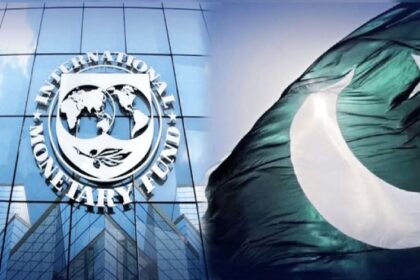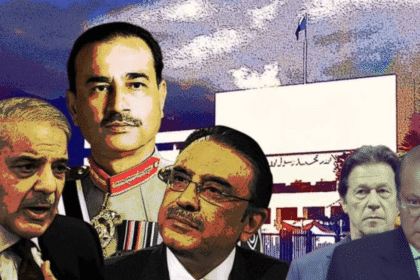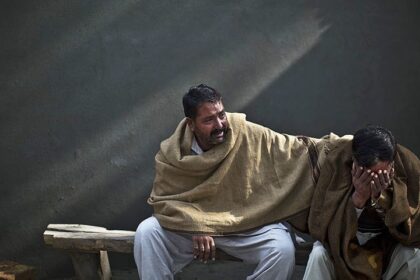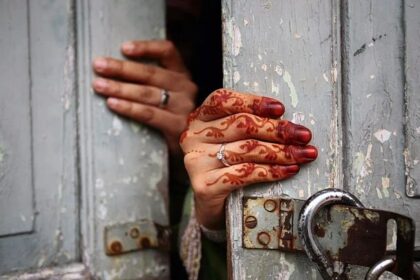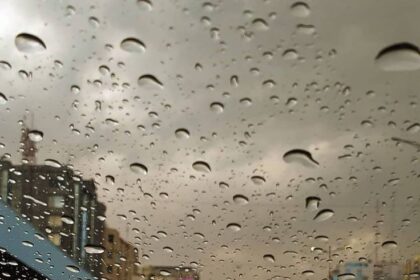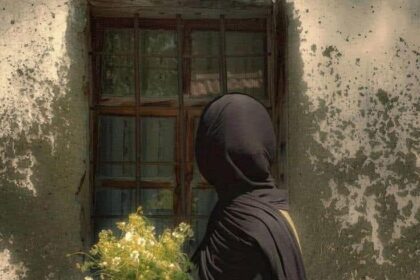In the dead of night, when most of Islamabad sleeps under a false sense of calm, Parwana Rahimi lies awake. The walls of her rented flat are thin—but it’s not the noise that keeps her up. It’s the silence. The kind that precedes a knock at the door. The kind that echoes like a countdown. Any day now, that knock could come—from authorities sent to drag her across the border she once fled for her life.
Parwana is not a criminal. She is not a threat. She is a journalist—Afghan, female, and loud. That last one alone is enough to make her a target in the Taliban’s Afghanistan. She fled to Pakistan in 2021, after Kabul fell. Like thousands of other Afghan women—journalists, activists, artists, and professionals—she had no choice. Her country declared war on her existence. Pakistan was the closest exit.
But now, that exit is closing.
Pakistan’s government is systematically rounding up Afghan refugees—documented and undocumented alike—and deporting them en masse. No due process. No protection for asylum seekers. No meaningful distinction between the innocent and the allegedly dangerous. Just a blunt-force policy: leave, or be forced out.
And the world? Barely blinking.
Parwana wrote to me with a message that read like a last will. Desperation laced every sentence. But she wasn’t begging. She was fighting—one sentence at a time—to stay alive.
“I am writing to you with a heavy heart and a desperate plea for help, as I face the imminent threat of deportation back to Afghanistan—a country where my life would be in grave danger.”
That’s not dramatisation. That’s a fact. That’s the reality of every Afghan woman in exile—especially those who dared to speak, write, protest, or dream in public. The Taliban has no tolerance for dissent—and even less for women with opinions.
There are currently between 2.6 and 3.7 million Afghan refugees in Pakistan. The numbers are hard to pin down because not all are registered. Some have UNHCR cards. Others hold Pakistani-issued PoR (Proof of Registration) cards. Many have nothing but the fear in their lungs.
But none of that seems to matter anymore.
Since late 2023, over 900,000 Afghans have been deported. That number grows daily. Buses are loaded at night. Families are split at the border. Entire lives are packed into trash bags and tossed across the line they once crossed to survive. And no—this isn’t just about “illegal immigrants.” Many of those being deported have valid documentation. Parwana has it. Others have ongoing asylum claims.
It’s not about legality. It’s about politics. Optics. The quiet convenience of scapegoating an entire population.
In September 2023, Pakistan launched the Illegal Foreigners Repatriation Plan. It sounds bureaucratic and boring. In reality? It’s a sweeping, violent campaign that’s already displaced nearly a million people. Officials claim they’re targeting those without documentation—but raids, arrests, and detentions have included women with valid visas and children born in Pakistan.
The campaign ramped up again in early 2025. New deadlines. New threats. Refugees in camps and urban neighbourhoods began disappearing overnight. Some left “voluntarily,” under the threat of imprisonment. Others were taken without explanation. This is not policy. This is a purge. UNHCR and IOM. Amnesty International. Human Rights Watch. They’ve all condemned the policy—calling it “unlawful,” “inhumane,” and “coercive.” But their words remain trapped in press releases and diplomatic memos while the deportations continue unchecked.
The Pakistani government insists it has the right to enforce immigration laws. Sure—it does. But there’s a difference between sovereignty and cruelty. Between legal rights and moral wrongs. Afghans aren’t just another refugee group. They are victims of a regime the world has already recognised as brutal, misogynistic, and violently repressive. Returning anyone—especially women—to Taliban-controlled Afghanistan should be seen as complicity in persecution.
The question no one wants to answer is: What happens to these women once they’re sent back?
We already know activists have been arrested. Journalists have vanished. Girls have been forced into early marriages. Former government workers have been flogged in public squares.
Women in Afghanistan today cannot:
- Attend secondary school or university.
- Travel without a male guardian.
- Speak publicly about their rights.
- Work in most sectors.
- Dress freely or gather in protest.
This isn’t theoretical. This is the law under Taliban rule. Since 2021, the Taliban has issued over 50 edicts targeting women’s rights and presence in public life. Violators are detained, beaten, or worse. That is not an exaggeration. That is ground truth.
Parwana has been a journalist since 2014. She reported on women’s access to education, healthcare, and independence. She spoke against the Taliban’s restrictions before they became law. For that, she fled. She came legally. She holds documentation. She volunteers to help fellow refugees. And still—she is on a list. A list of people to be erased. Her voice, like so many others, isn’t just being ignored—it’s being actively deleted.
The international media briefly covered the fall of Kabul. They showed women burning diplomas. Hiding books. Crying as the last plane left. Then, they turned the cameras away. Nearly four years later, Afghan women like Parwana are still fighting the same fight. Only now, they’re doing it from Karachi. From Islamabad. From Quetta. And they’re losing.
Their stories don’t trend. Their pain doesn’t go viral. Their lives are bargained in backroom deals—as if they were political inconveniences, not human beings. And we let it happen.
This is not a “migration issue.” It is a human rights crisis. And Pakistan is failing the test. You cannot claim to support women’s rights while sending women back to a regime that punishes them for being literate. You cannot claim journalistic freedom while deporting reporters to a place that flogs and executes them. You cannot claim humanity while erasing the people who risked everything to escape barbarism.
You may be asking: What can I do? Start here:
- Share Parwana’s story.
- Write. Protest. Speak.
- Pressure your policymakers.
- Call it out when your government stays silent.
- Refuse to let refugee lives be traded for political gain.
Refugee rights are human rights. Not privileges. Not favours. Rights.
The world turned its back on Afghanistan once. Let’s not do it again—this time, with our eyes wide open.








